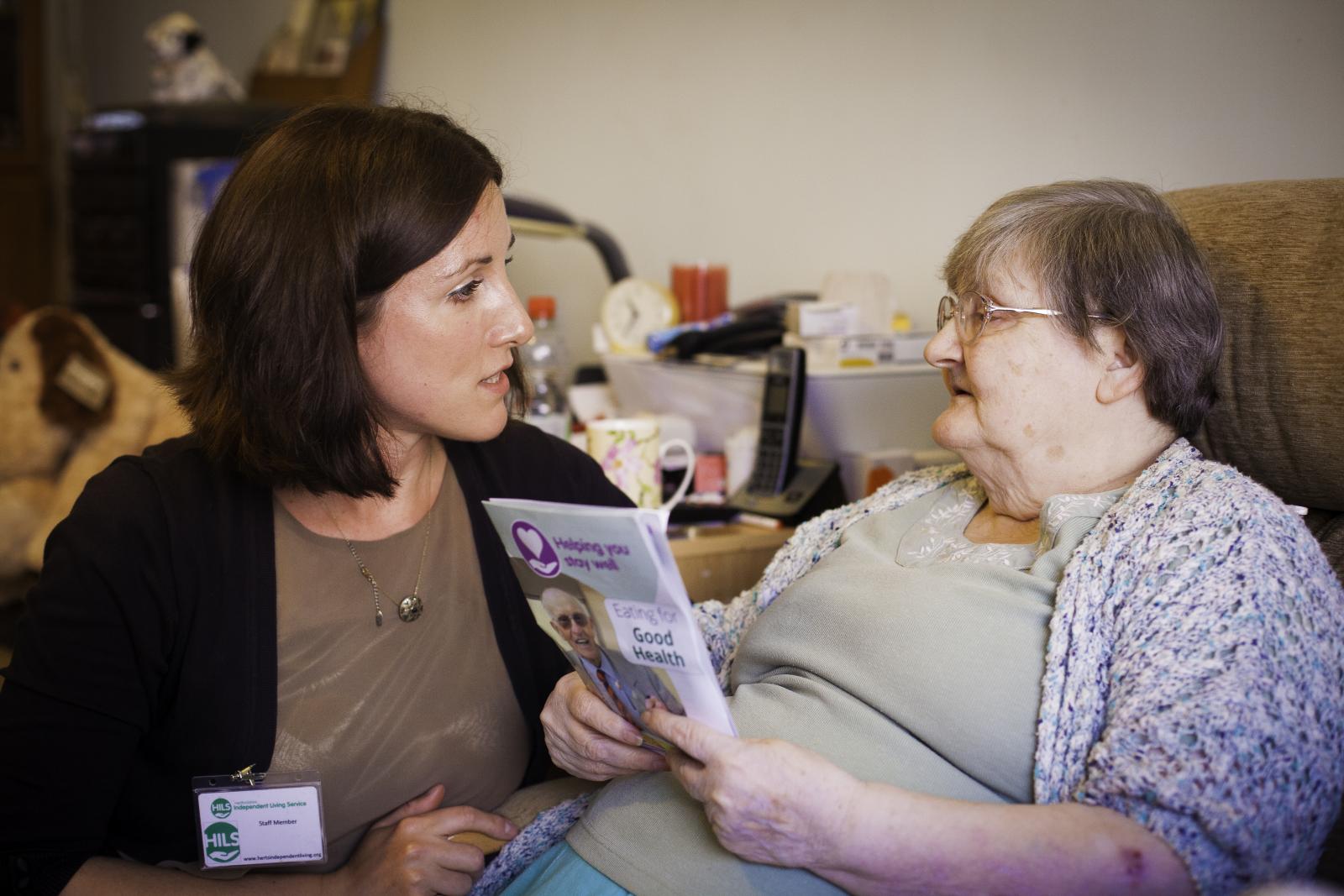 Hertfordshire Independent Living Service
Hertfordshire Independent Living Service
Sustain is hosting the Home from Hospital project, exploring how to ensure people can access food when they are discharged from hospital. We aim to capture what does and doesn’t work, as well as discussing ideas for how to improve support. So far, we have surveyed patients, families and professionals on their experiences, had individual conversations and an online workshop.
Most patients are discharged back to their own homes. For example, the guidance for hospital discharge in England expects that 50% of patients can return home with continuation of existing support on ‘Pathway 0’ and that 45% of remaining patients can return home with new, additional or a restarted package on ‘Pathway 1’. Yet we know that even for those with the simplest of discharge processes are likely to experience significant changes in their wellbeing and disruption to their support; access to food and nutrition are key issues that will have be affected.
There are so many individuals and organisations taking action to ensure people can access food on leaving hospital, during our online workshop, presentations covered British Red Cross food parcels and frozen meal provision, the Food Train’s shopping and meals and other support and Hertfordshire’s community navigators linking people to Hertfordshire Independent Living Service’s meals on wheels. Many other examples were also mentioned during the session. Several over-riding messages have come out through our research so far.
Finding out what people need and who can help
It should never be underestimated how important it is to identify people’s food needs and preferences. This should, wherever possible, involve the patient themselves, but could also involve asking family, friends and professionals. People can be reticent about their needs for a range of reasons, so acute and ward staff also have a key role asking and observing during hospital stays.
‘Only works if staff in the acute setting ask the right questions.’
Those involved in discharging patients also need to know who and which organisations are, or could be, in someone’s support network whether through informal care or formal care plans.
‘The key is the hospital/ GPs/ medical staff knowing who to contact in the event that someone requires food support during recovery at home.’
Communicating with people’s support networks and planning food access in advance
Good and joined-up communication has been raised many times, particularly between health professionals and community services, as well as with patients, their families and informal support networks.
‘Appropriate family, carer, or relative liaison prior to discharge. Good communication with community teams. Joined-up working.’
A clear plan with specific responsibilities was also identified. In many cases this will include meeting more immediate needs or a temporary response alongside a longer-term plan.
‘It is important for people to have as much needed support as possible organised and in place before discharge especially with regards to food access. A reliable temporary support also works well while a more permanent solution is found.’
‘Only works if discharge plan includes exactly who is shopping or what is the plan, many discharges poorly thought out re[garding] food and shopping.’
It’s also important to think about the situation someone is going back to, and exactly who will do the shopping, unpack it, prepare ingredients or heat meals.
‘We have often had to clear out months' old food from fridges prior to providing fresh food for these patients.’
Funding and resourcing discharge teams and organisations supporting people at home
There is of course recognition of the pressures on health and care budgets, but access to food is both a fundamental right as well as an opportunity to prevent escalation of needs and ensure good recovery to allow people to live well in their own homes.
‘Investment of services to build community support networks to provide appropriate fresh food to welcome people back to their home.’
What next?
Through our survey and meetings to date, we have collected a wide range of suggested actions to provide the policy and practice needed to ensure patients have access to food when they return home. Future blogs will highlight good practice examples from around the country and highligth opportunities for actions.
It was also really pleasing to hear requests for further opportunities for people and services from across different areas to be able to share learning and act together. Please do contact us to share any practice or experiences.
Older People’s Food Campaign: Meals on wheels services support thousands of older people every day to stay independent in their own homes and enrich their lives.
Sustain
The Green House
244-254 Cambridge Heath Road
London E2 9DA
020 3559 6777
sustain@sustainweb.org
Sustain advocates food and agriculture policies and practices that enhance the health and welfare of people and animals, improve the working and living environment, promote equity and enrich society and culture.
© Sustain 2024
Registered charity (no. 1018643)
Data privacy & cookies
Icons by Icons8







